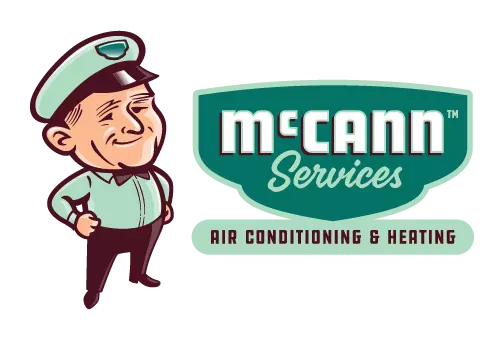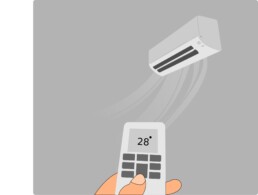Living in Bellaire, TX, means experiencing a subtropical humid climate for a significant part of the year. On certain days in the summer, the humidity can reach 90% and that can be stifling and suffocating.
While air conditioning systems help manage indoor temperatures, they might not always adequately control humidity levels. High indoor humidity can lead to various issues, affecting both your health and your home.
Here’s how to determine if you need whole-home humidity control services to achieve optimal indoor comfort levels.
Understanding Indoor Humidity
Indoor humidity refers to the amount of moisture present in the air within your home. Ideally, indoor humidity levels should be between 30% and 50%. Levels outside this range can cause discomfort and damage.
High humidity levels are common in Bellaire, TX, due to its climate, and controlling these levels is crucial for maintaining a comfortable and healthy home environment.
Signs You Need Whole-Home Humidity Control
If you think you are used to the humid weather in Bellaire, think again. It’s not only your health that can suffer due to long-term humid weather but also your home. Here are the key indicators to consider:
1. Persistent Dampness and Musty Odors
If you notice persistent dampness in your home or a musty odor, it’s a clear sign of high humidity. Dampness can make your home feel uncomfortable and contribute to a musty smell.
This is often caused by mold and mildew growth. These odors can be particularly strong in basements, bathrooms, and closets.
2. Mold and Mildew Growth
Mold and mildew thrive in moist environments. If you see black or green spots on walls, ceilings, or other surfaces, it’s a sign of mold growth due to high humidity.
Mold can cause serious health issues, including allergies, respiratory problems, and other infections, making it essential to control humidity levels.
3. Condensation on Windows
Condensation on windows, especially during the summer, indicates excessive indoor humidity. When warm, moist air comes into contact with a cooler surface like a window, it condenses into water droplets. Frequent condensation can damage window frames and sills, leading to rot and decay.
4. Warping and Damage to Wood
High humidity levels can cause wood to warp and swell. If you notice doors, windows, or wooden furniture becoming difficult to open or close, or if you see visible warping or cracking, it might be due to excessive moisture in the air.
5. Increased Allergy Symptoms
Excessive indoor humidity can exacerbate allergy symptoms. Dust mites, mold, and mildew thrive in humid conditions, leading to increased allergic reactions. If you or your family members experience worsened allergies or asthma symptoms at home, it might be due to high humidity levels.
6. Uncomfortable Indoor Environment
High humidity levels can make your home feel sticky and uncomfortable. Even with air conditioning, if you still feel hot and sticky indoors, it’s likely due to excess moisture in the air. This discomfort can affect your overall well-being and make it difficult to relax at home.
7. High Energy Bills
Running your air conditioner constantly to combat humidity can lead to higher energy bills. Air conditioners are designed to cool the air, not necessarily to control humidity.
If you notice a significant increase in your energy bills during the humid months, it might be time to invest in a whole-home humidity control system.
Benefits of Whole-Home Humidity Control
Proper humidity levels make your home feel more comfortable, reducing that sticky feeling during the hot months. You can bear that sticky feeling for a little while, but after months and months, it can be torturous.
Controlling humidity helps prevent mold and mildew growth, reducing allergens and improving indoor air quality. Proper humidity levels prevent damage to wood, paint, and other materials, preserving your home’s structure and aesthetics.
Maintaining optimal home humidity levels can reduce the load on your air conditioning system, leading to lower energy consumption and bills.
Types of Humidity Control Systems
So which humidity control system will work for your home? It’s best to consult with an HVAC specialist about that. There are several types of humidity control systems available, each with its advantages:
Whole-Home Dehumidifiers
These systems are integrated with your existing HVAC system to control humidity throughout your home. They work by drawing in humid air, removing the moisture, and then circulating dry air back into your living spaces.
Standalone Dehumidifiers
These portable units can be placed in specific areas of your home, such as basements or bedrooms, to target high-humidity zones. While effective for smaller spaces, they are less comprehensive than whole-home systems.
Ventilation Systems
Proper ventilation can help manage humidity levels by bringing in fresh air and expelling moist indoor air. This can be achieved through exhaust fans, attic ventilation, and whole-house ventilation systems.
Smart Thermostats
Some smart thermostats have built-in humidity sensors and can work in conjunction with your HVAC system to maintain optimal home humidity levels. There are many good ones on the market right now with Nest being the most well known.
Choosing the Right Humidity Control Service
Start by having a professional HVAC technician assess your home’s humidity levels and recommend the best solution. They can identify problem areas and suggest the most effective system for your needs.
System Compatibility
Ensure that the humidity control system is compatible with your existing HVAC system. A professional can help you choose a system that integrates seamlessly with your current setup.
Energy Efficiency
Look for energy-efficient systems that can help reduce your overall energy consumption. This not only saves you money but also benefits the environment.
Cost
While the initial investment in a whole-home humidity control system might seem high, consider the long-term benefits and savings on energy bills and potential home repairs. It could save you a ton in the long run.
Humidity Control Tips to Create a Comfortable Home Environment
It’s easy to lament the fact that you live in such a subtropical humid climate like that of Bellaire, TX. But you don’t have to live like this.
Following the humidity control tips laid out above, you can create a comfortable space in your home for your loved ones.
Need more help in this regard? McCann Services Air Conditioning & Heating has been offering AC services in Bellaire, Texas for over three decades now. Speak to our team about your HVAC needs and let us help you thrive in Bellaire’s humid climate.

